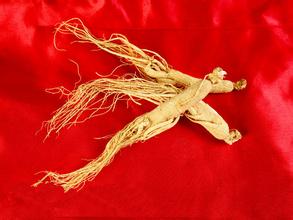Qi, blood, and body fluid are fundamental substances of the human body which sustain the normal physiological functions of the zang-fu organs and tissues.
Qi
The character qi denotes a dynamic essence characterized by both substance and function. For example, clean qi, turbid qi, and the qi transformed from the essence of food are substantial qi, while the qi of the heart, liver, spleen, kidney, stomach, and the qi of the channels and collaterals are functional qi.
The classification of qi in the human body varies with its distribution, origin, and function.

1. Primary Qi (yuan qi)
Primary qi is the most important and fundamental qi originating from the congenital essence. It is nourished and replenished by the fundamental substance of food after birth. Primary qi is also known as the qi of the kidney, and is distributed to the whole body via the sanjiao functions. It arouses and promotes the activities of the zang-fu organs and tissues. If primary qi is congenitally deficient or exhausted due to chronic disease, then various pathological changes will occur. Click here to read Ulcerative Colitis in TCM.
2. Aggregative Qi (zong qi)
This is the combination of inhaled clean qi through the lung with the fundamental substance qi of food digested and absorbed by the stomach and spleen. Aggregative qi is accumulated in the chest and has the function of nourishing the lung and the heart, thus promoting respiration and blood circulation.
3. Nutrient Qi (ying qi)
Nutrient qi originates from the essential substance of food transformed by the spleen and stomach. It is the component part of blood flowing throughout the body. The Suwen states, "Nutrient qi is actually the essential qi transformed from food and water."2 While in the Lingshu it is recorded:
The nutrient qi is secreted by the body fluid, circulates in the blood vessels, and is transformed into blood to nourish the four extremities, the five zang and six fu organs.3
4. Defensive Qi (wei qi)
Defensive qi is mainly derived from the essential substances of food and water which form a part of the human body's yang qi. It circulates outside the vessels mainly spreading through the muscles and skin. Its physiological functions are 1) defending the body surface against the invasion of exogenous pathogenic factors, 2) warming and nourishing the tissues and organs, and 3) adjusting the opening and closing of the pores.
Blood
Blood is transformed from the essence of food via the digestion and absorption of the spleen and stomach. According to the Lingshu, "When the middle jiao receives food and water, it transforms it into red fluid which is called blood."4 After its formation, blood circulates incessantly throughout the body to nourish the zang and fu organs, the skin, the muscles, tendons, and bones in order to maintain their normal physiological activities. Click here to read Proctitis in TCM.
Blood is the substantial basis for mental activities. Only when there the qi and blood are abundant can there be high spirits and clear minds. So in the Suwen it states, "Blood and qi are the spirits of man."5 Pathological changes of blood cause symptoms of palpitation, Insomnia, unconsciousness, delirium, etc.
Body Fluid
Body fluid in traditional Chinese medicine is a general term for all normal liquid in the body including saliva, gastric fluid, intestinal fluid, joint cavity fluid, tears, nasal discharge, sweat, urine, etc.
Body fluid is derived from food and drink which is digested and absorbed by the spleen and stomach. It exists in the blood, tissues, and interstices of joints. A lucid and thin fluid termed jin fluid permeates the muscles and skin. Its main physiological function is to warm and nourish the muscles, and to moisten the skin. A turbid and viscous fluid called ye fluid supplies the joint cavities, brain, and body orifices. Its main physiological function is to lubricate the joints, tone the brain, and moisten the orifices. Although corresponding in general origin, formation, and function, jin and ye differ by their distribution, location, and individual functions. Since no definitive line can be drawn between the two, they are not clinically differentiated but are generally termed jinye (body fluid).

![Diseases, Symptoms, tcm, [tcmwindow.com]](/uploadFile/adImg/2015/4/24/6de633b8-0a7a-4546-868a-02389edf5c65.png)





